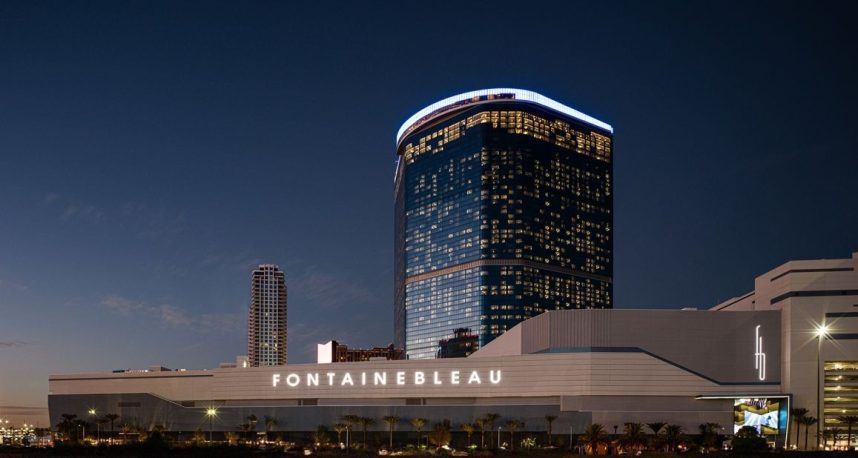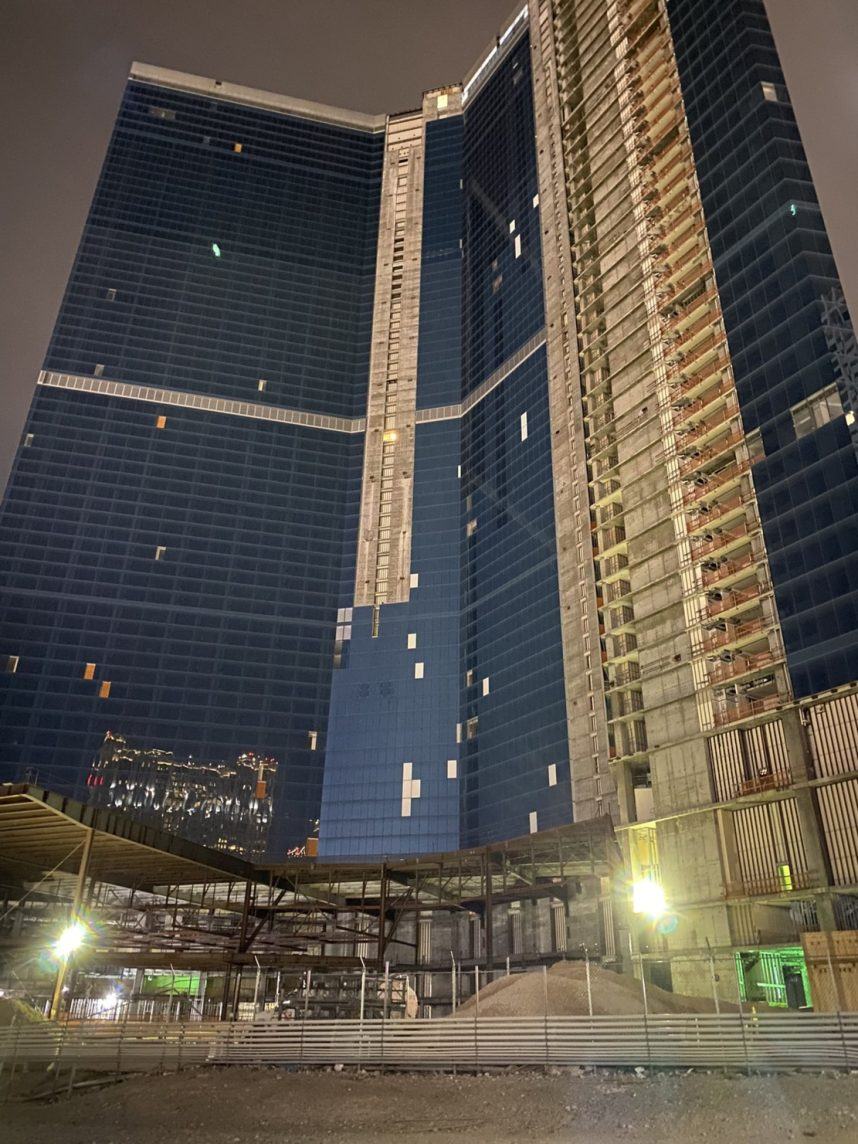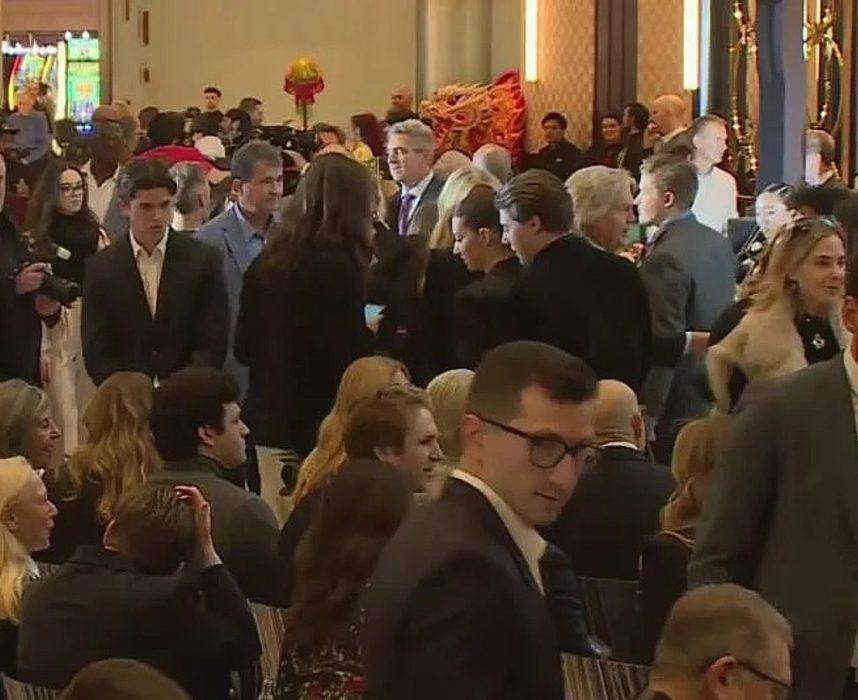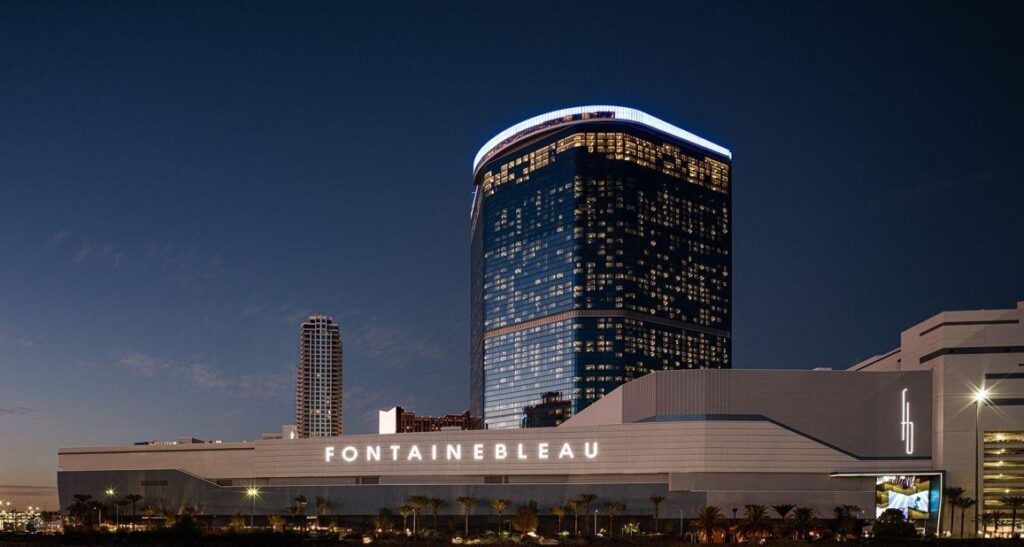Posted on: December 13, 2023, 08:09h.
Last updated on: December 13, 2023, 08:18h.
Fontainebleau Las Vegas first broke ground in February 2007. That’s so long ago, the Frontier was still operating across the street. Its owners, led by Jeffrey Soffer, planned to open it as a sister property to their Miami resort in October 2009.

Instead, for 16 years, what was planned as the tallest occupied building in Nevada remained unoccupied. The project changed ownership and names, went bankrupt, started and stopped construction and then started and stopped again, before resuming for the final stretch.
At midnight on Thursday, the Fontainebleau will open to the public as the Strip’s newest casino resort. This is the wild story of how it got there.

Nearly Bleau It
Construction began in 2007 on the plot first occupied by the Thunderbird hotel and casino in 1948. (Later, it was renamed the Silverbird, and then the El Rancho, before closing in 1992.)
After 1929, however, 2007 was the worst year to start a construction project in American history. When the U.S. real estate bubble burst a year later, it propelled the world into the Great Recession.
There were bad omens, if you believe in that kind of stuff. In August 2007, a construction worker died after a 30-foot fall. A few days later, a concrete slab in the garage fell, causing two lower floors to collapse.
Nevertheless, the hotel’s 68-story tower was topped off on Nov. 14, 2008.
And that’s when the project’s luck really ran out. The Fontainebleau’s lenders, Bank of America and JP Morgan Chase, got so spooked by the economic outlook, they canceled their $770 million in funding in 2009.
The $2.8B project went bankrupt.
Unfinished Business
On the roof, the cranes stopped moving. Eventually, they were removed entirely. The luxurious furnishings purchased to adorn its 3,644 rooms were sold to The Plaza downtown and Buffalo Bill’s in Primm.
For most of 2009 through 2017, the structure stood only 70% complete, an unwanted and humiliating monument to economic ruin.
But billionaire investor Carl Icahn saw only economic opportunity. He bought the building in a 2010 bankruptcy auction for $150M and did not do a single thing to it for seven years. In 2017, he sold it to property developer Steven Witkoff and an investment firm called New Valley for $600M, four times what he paid.
And that’s why he’s Carl Icahn.

Bookended by Disasters
Witkoff began redeveloping the unfinished casino resort, which he renamed The Drew Las Vegas in honor of his son Andrew Witkoff, who died of a drug overdose in 2011.
In February 2018, Marriott International signed on to manage and operate the hotel portion. Early 2022 was set as the project’s second new opening date.
In March 2018, an intruder set the first of two fires that would plague the construction site, causing $10 million in damage. (The second, a minor blaze, occurred this July.)
The opening was pushed back to the second quarter of 2022.
But construction was halted in March 2020, as the COVID-19 pandemic forced the shutdown of businesses in Las Vegas. At the time, Witkoff was close to finalizing a $2 billion construction loan, but it never came through.
History was starting to repeat itself. And then, it really repeated itself.
Full Circle

In a stunning turn of events, the project was reacquired by Soffer in 2021 for $650M through his company, Fontainebleau Development, in partnership with Koch Real Estate Investments. They agreed to take on Witkoff’s debt to avoid foreclosure, and the project re-hewed to its original plans.
Marriott mysteriously pulled out of its deal, but the Fontainebleau project forged ahead without the hotel giant’s relatively paltry $50M investment.
The Fontainebleau’s full price tag was now $3.7B, making it the second most expensive resort ever developed in Las Vegas after the $4.3B Resorts World.
“Welcome to the Fontainebleau Las Vegas era,” Soffer said at an invite-only ribbon-cutting on Wednesday. “Today, we open our doors to the world, and welcome our first guests to experience the pinnacle of luxury hospitality.”
So what took you so long?




